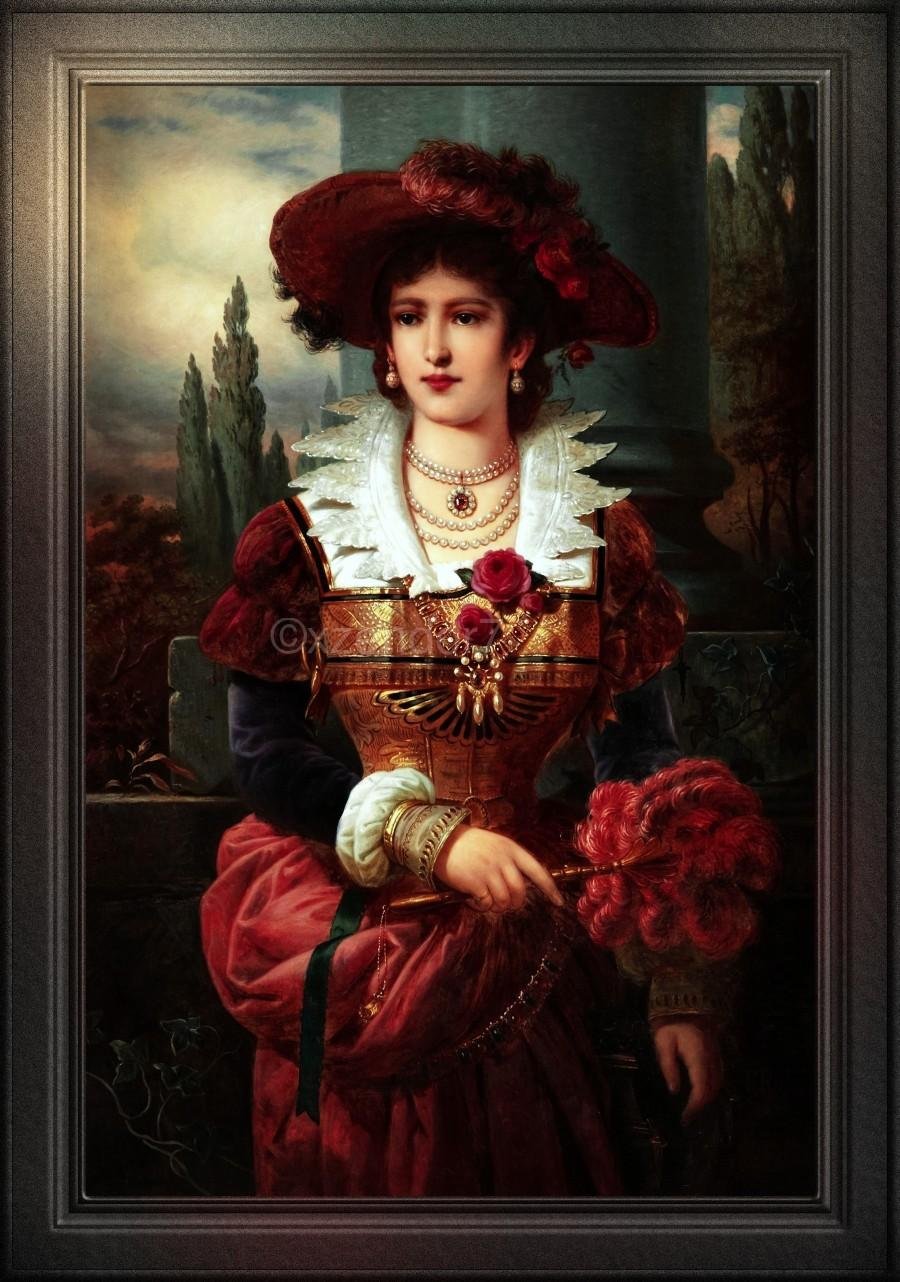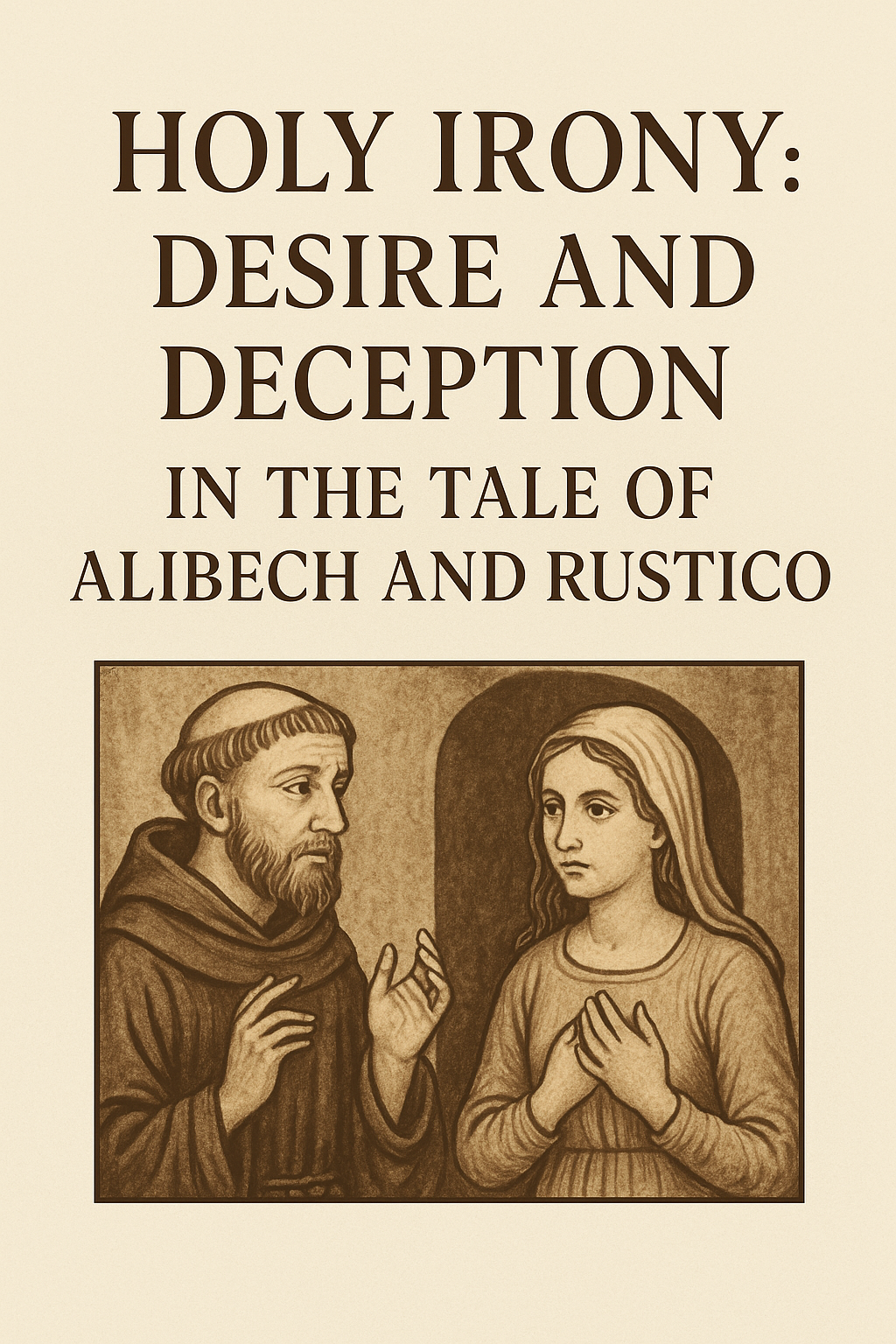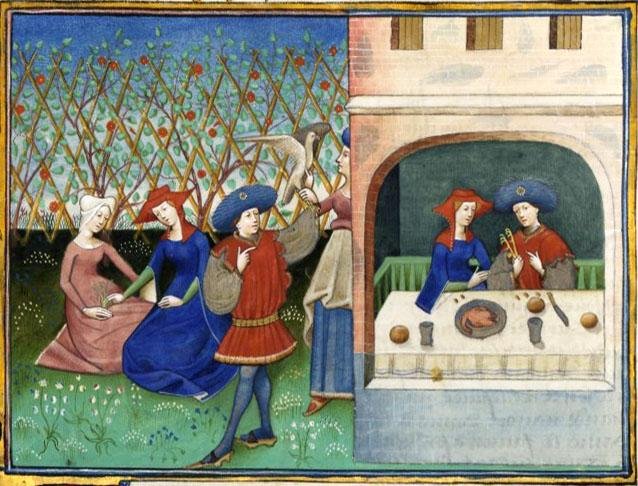Sacrifice and Love: The Tragic Beauty of Federigo’s Falcon

INTRODUCTION:
Few stories in Giovanni Boccaccio's The Decameron had the same profound impact as Federigo's Falcon. This touching story examines the terrible yet lovely reality that true love frequently necessitates sacrifice against a background of courtly affection and controlled desperation. Federigo is the protagonist, a nobleman whose steadfast loyalty causes him to sacrifice his most valuable item out of pure compassion and respect rather than for fame. We discover enduring themes of giving, grief, and the surprising ways that love returns to us as we follow this story. Let's examine more closely why people are still moved by this age-old story.
SUMMARY:
Federigo, a nobleman, squanders his wealth trying to win the love of a lady named Monna Giovanna. After losing everything, he lives in poverty with only a prized falcon. When Monna Giovanna’s son falls ill and says the only thing that could save him is Federigo’s falcon, she visits Federigo to ask for it. Not knowing her request, and wanting to honor her with a meal, Federigo cooks the falcon for her. When she finally makes her request, she’s heartbroken to learn the bird is gone. Later, after her son dies, she marries Federigo, moved by his nobility and sacrifice.
ANALYSIS:
Giovanni Boccaccio’s Federigo’s Falcon, from The Decameron, is a tender tale that delves into the themes of sacrifice, love, and moral nobility. At its core, the story highlights the quiet heroism of Federigo, a man who loses his wealth in a fruitless attempt to win Monna Giovanna’s love, only to later win her heart through an act of genuine generosity. His journey from a wealthy nobleman to a humble farmer underscores a powerful message: true worth is measured not by riches, but by the capacity to give selflessly.
Federigo’s most significant act cooking his cherished falcon to provide a decent meal for Monna Giovanna is both tragic and touching. Unaware that she has come to ask for the very bird, his decision to sacrifice his last possession reflects not desperation, but a deep sense of honor and hospitality. It’s a gesture that speaks volumes about his character and, ironically, the very act that ultimately earns Monna Giovanna’s respect and affection.
The falcon itself is a potent symbol. It represents Federigo’s love, his past status, and ultimately, his transformation. Once a tool of aristocratic sport, the falcon becomes a sacrificial offering, marking the death of Federigo’s material ambitions and the birth of a deeper, more meaningful connection. Through this, Boccaccio suggests that genuine love often emerges not through conquest, but through quiet, unrecognized acts of selflessness.
In the end, Monna Giovanna’s choice to marry Federigo despite his poverty underscores the tale’s moral center: that true nobility lies in the soul, not in social standing. Federigo’s Falcon remains a timeless story, reminding readers that the most profound forms of love often require the greatest personal sacrifices.
PERSONAL RESPONSE:
Reading Federigo’s Falcon moved me in an unexpected way not because of grand romance, but because of the quiet, painful beauty in Federigo’s sacrifice. His story feels deeply human: loving someone from a distance, losing everything in the process, and still choosing to give the best of yourself even when there's nothing left. The moment he serves Monna Giovanna the falcon, unknowingly giving up the very thing she came for, is heartbreaking yet noble it speaks to the kind of love that expects nothing in return. It made me reflect on how we often equate love with success or grand gestures, but sometimes the most meaningful expressions come through quiet acts of humility and grace. In the end, Federigo’s dignity in poverty and Monna Giovanna’s eventual recognition of his worth left me thinking about how true value lies not in what we have, but in how we love.
CONCLUSION:
In the end, Federigo’s Falcon is more than just a tale of unrequited love turned fulfilled—it’s a reminder that the most genuine forms of love often grow from sacrifice, patience, and quiet strength. Boccaccio gives us a story that values inner nobility over outward success, showing that true love doesn’t need wealth or status to be real. Federigo’s story invites us to reflect on what we’re willing to give for those we care about, and how sometimes, the simplest acts of kindness can leave the deepest impact.








